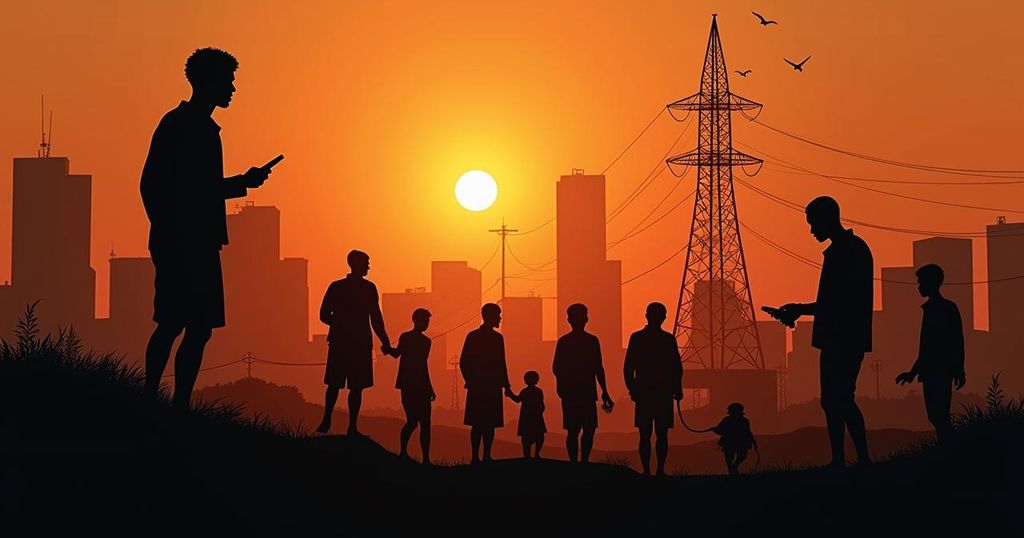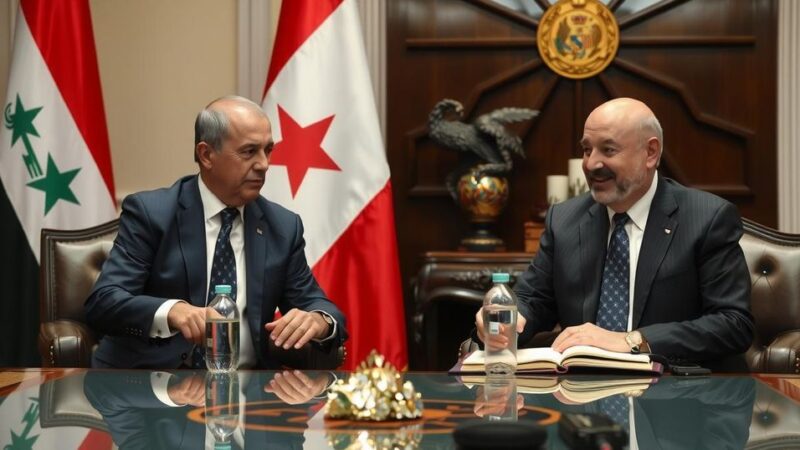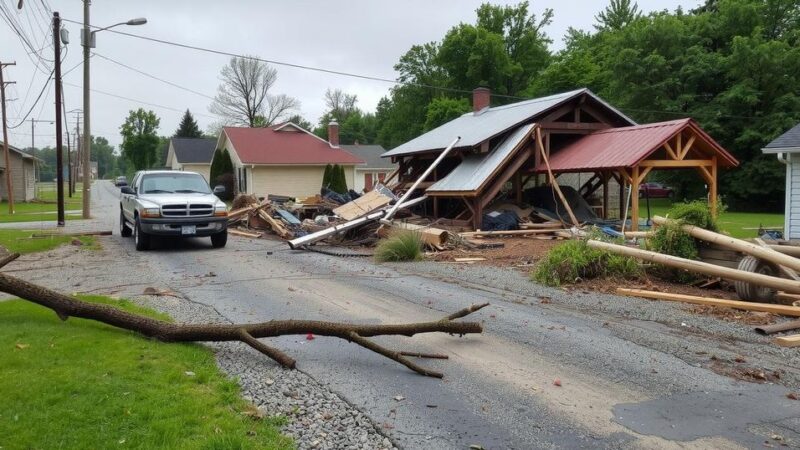The Lebanese community in West Africa, spanning countries like Senegal, Côte d’Ivoire, and Nigeria, experiences deep emotional turmoil due to Israeli air strikes in Lebanon. Individuals such as Zoheir Zeidan, Zara Mirza-Branger, and George Chaanine articulate feelings of fear and sadness while seeking to provide aid and maintain solidarity with their homeland. Their personal accounts reflect the broader impacts of the conflict on the diaspora, underscoring a sense of community and urgency.
The escalating conflict in Lebanon, attributed to Israeli air strikes, has had a profound impact on the Lebanese diaspora residing in West African nations such as Senegal, Côte d’Ivoire, and Nigeria. Members of the community, which totals several hundred thousand individuals, are experiencing a range of emotions from sadness to fear and anger as they follow events unfolding in their homeland. This article encapsulates the personal accounts of three individuals connected to the Lebanese community in these regions, highlighting their anguish, solidarity, and efforts to provide aid from afar. Zoheir Zeidan, a 61-year-old telecom director based in Dakar, has observed the ongoing violence with trepidation. As a Shiite Muslim, he anticipated that Israel’s military actions would eventually target Lebanon, especially in light of Iranian-backed Hezbollah’s involvement. “We knew that Israel’s next step would be Lebanon,” he remarked. Zeidan spoke of the harrowing moment he learned of the death of a childhood friend and his family due to the bombings, instigating a distressed state of readiness within him and his community. He continues to mobilize support, relaying messages from relatives in Lebanon about essential supplies needed for survival amidst the turmoil. In Abidjan, Zara Mirza-Branger, a 31-year-old sales assistant, has been consumed by worry for her parents who recently relocated to Beirut from Tyre due to escalating danger. “We’re always watching the news, we can’t even think about working any more,” she expressed, describing the relentless anxiety she feels with every report of bombings. Mirza-Branger is actively involved in aid collection efforts, striving to alleviate some of the hardships faced by those in Lebanon, particularly focusing on necessities such as food and medicine. Meanwhile, George Chaanine, a 31-year-old business owner in Lagos from the Maronite Christian community, faces challenges in aiding his family due to the increasing difficulty of obtaining goods and the mounting prices caused by the war. “Importing goods from Lebanon becomes significantly harder, prices go up,” he explained, stressing the urgent need for solidarity among the diaspora to support their compatriots back home. These personal narratives depict a community that grapples with the repercussions of violence in Lebanon while trying to maintain a sense of unity and support across borders. As they confront the realities of war, their shared resilience shines through, underscoring the profound sense of belonging and obligation they feel towards their homeland.
The Lebanese diaspora, particularly in West Africa, has been directly affected by the recent escalation of violence in Lebanon due to Israeli air strikes. Given the historical context of Lebanese conflicts and the foreign involvement in the region, many expatriates have remained vigilant regarding potential attacks on their homeland. This article specifically examines the emotional and logistical responses of Lebanese expatriates in Senegal, Côte d’Ivoire, and Nigeria, revealing a strong sense of community and activism in support of those impacted by the conflict. The stories highlight not only personal losses but also the broader struggles faced by displaced Lebanese citizens as they attempt to navigate the humanitarian crisis caused by ongoing warfare.
In conclusion, the stories of Zoheir Zeidan, Zara Mirza-Branger, and George Chaanine reflect the profound impact of the Lebanese conflict on the diaspora in West Africa. Their collective experiences illustrate an ongoing struggle with fear, sadness, and a desire to offer support despite the physical distance from their homeland. Through their efforts to mobilize aid and maintain communication with loved ones in Lebanon, these individuals exemplify the resilience of the Lebanese community abroad amidst crisis. The situation remains dire, emphasizing the urgent need for international attention and intervention to alleviate the suffering in Lebanon.
Original Source: www.channelstv.com







